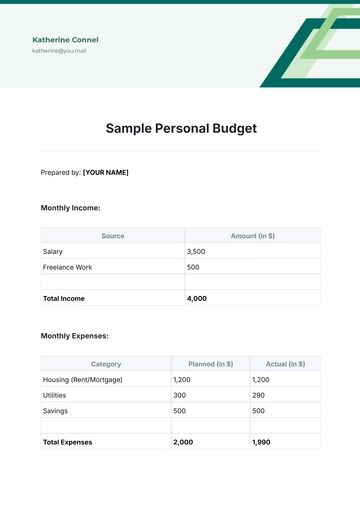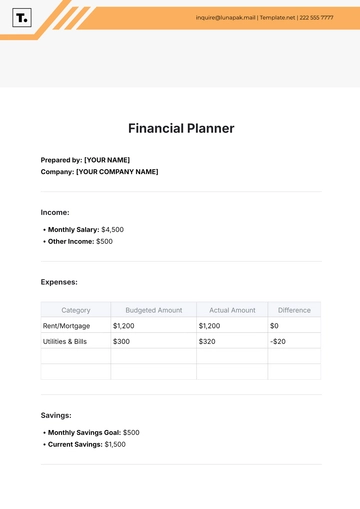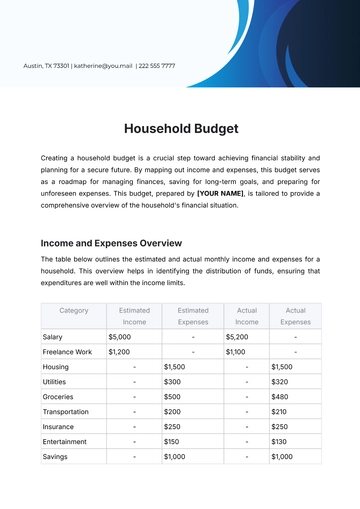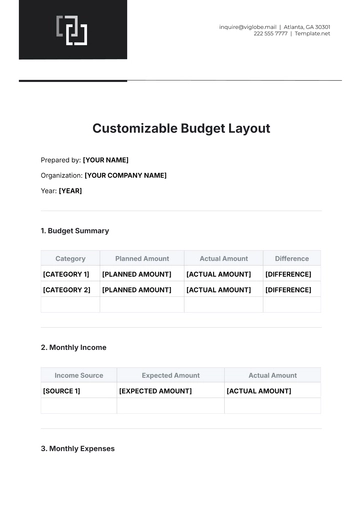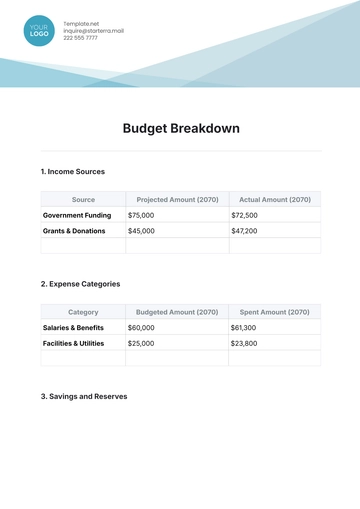Free Monthly Food Spending Tracker
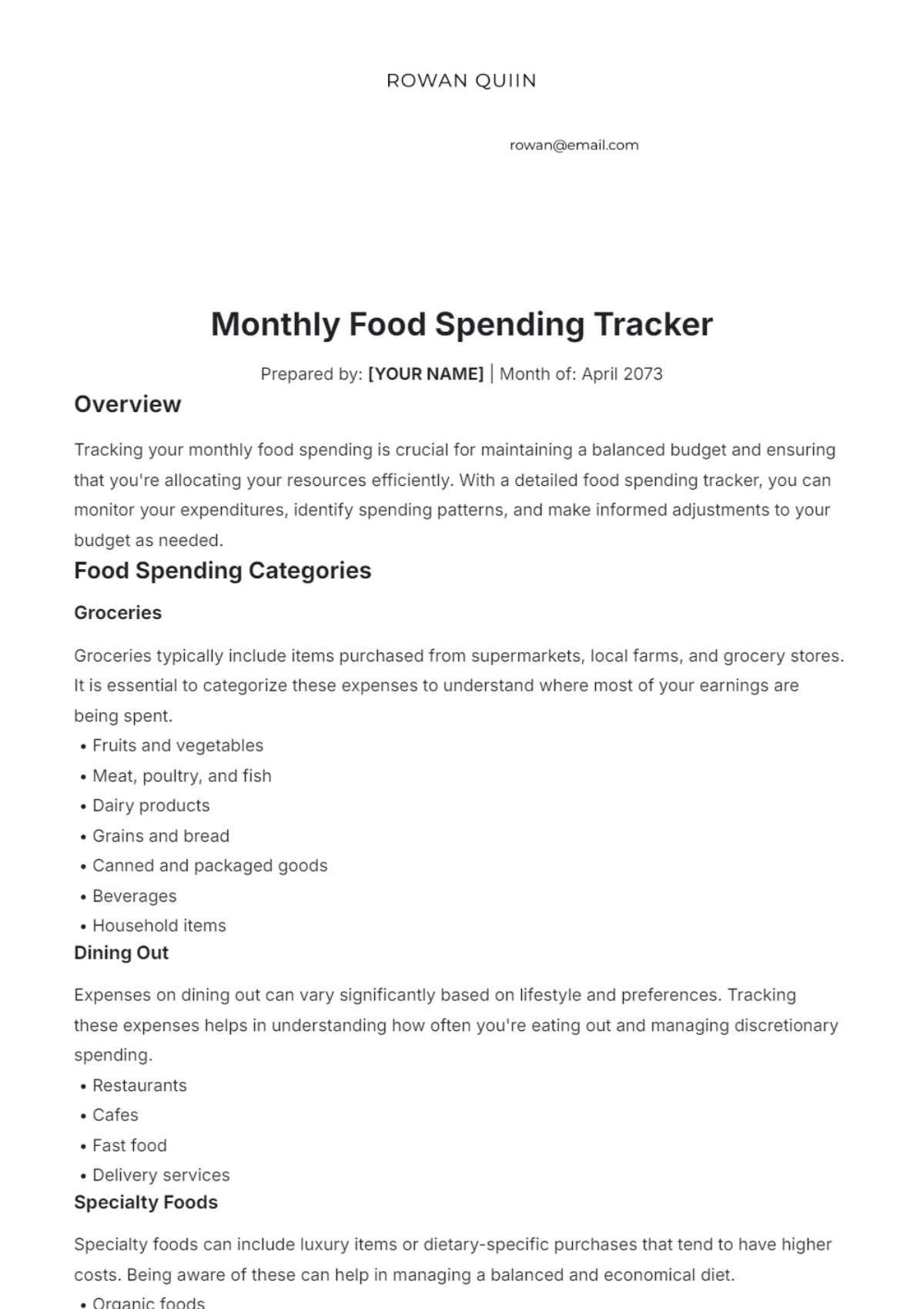
Prepared by: [YOUR NAME] | Month of: April 2073
Overview
Tracking your monthly food spending is crucial for maintaining a balanced budget and ensuring that you're allocating your resources efficiently. With a detailed food spending tracker, you can monitor your expenditures, identify spending patterns, and make informed adjustments to your budget as needed.
Food Spending Categories
Groceries
Groceries typically include items purchased from supermarkets, local farms, and grocery stores. It is essential to categorize these expenses to understand where most of your earnings are being spent.
Fruits and vegetables
Meat, poultry, and fish
Dairy products
Grains and bread
Canned and packaged goods
Beverages
Household items
Dining Out
Expenses on dining out can vary significantly based on lifestyle and preferences. Tracking these expenses helps in understanding how often you're eating out and managing discretionary spending.
Restaurants
Cafes
Fast food
Delivery services
Specialty Foods
Specialty foods can include luxury items or dietary-specific purchases that tend to have higher costs. Being aware of these can help in managing a balanced and economical diet.
Organic foods
Gluten-free products
Vegan and vegetarian options
Imported gourmet items
Monthly Food Spending Table
A detailed table helps in numerically keeping track of your monthly food expenses. Below is a sample table structure that can be used to record your spending:
Category | Item | Date | Amount |
|---|---|---|---|
Groceries | Milk | 01/05/2073 | $3.50 |
Groceries | Bread | 02/05/2073 | $2.00 |
Dining Out | Restaurant Dinner | 03/05/2073 | $25.00 |
Specialty Foods | Organic Salad | 04/05/2073 | $5.00 |
Analyzing Your Spending
At the end of each month, it is beneficial to analyze your food spending data. This involves looking at the total expenditures for each category and comparing them to your budget. Identify areas where you may reduce costs or allocate funds differently. Below are a few tips for effective analysis:
Calculate the total expenditure for each category (Groceries, Dining Out, Specialty Foods)
Compare your spending against your initial budget
Identify any unexpected expenses and understand their causes
Look for patterns such as frequent dining out or splurging on specialty items
Make adjustments to your future budget based on your findings
Conclusion
A consistent and organized approach to tracking your monthly food spending can have a significant impact on your overall financial health. It provides clarity, enables informed financial decisions, and promotes a balanced lifestyle. Make use of the categories, tables, and analysis techniques mentioned above to keep your food expenses in check and optimize your monthly budget.
- 100% Customizable, free editor
- Access 1 Million+ Templates, photo’s & graphics
- Download or share as a template
- Click and replace photos, graphics, text, backgrounds
- Resize, crop, AI write & more
- Access advanced editor
Take control of your finances with the Monthly Food Spending Tracker Template available at Template.net. This customizable template enables you to analyze your monthly food expenditures. Editable in our AI Editor Tool, it helps you identify spending patterns, allowing you to budget smarter and prioritize healthier food choices without overspending.
